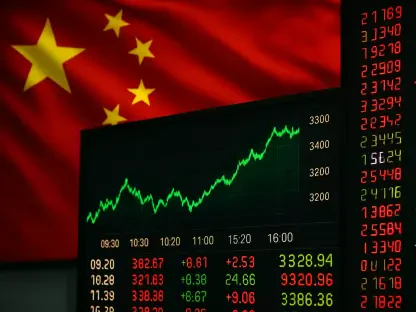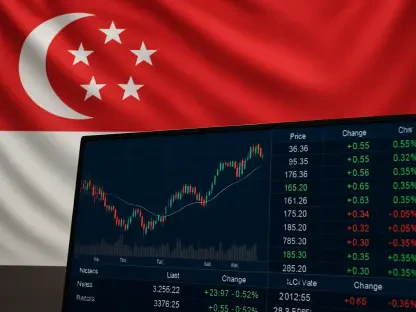U.S. President Donald Trump’s consideration of temporarily exempting the auto industry from previously imposed tariffs has drawn both support and skepticism. This initiative is designed to give automakers like Ford, General Motors, and Stellantis the necessary time to adjust their supply chains by relocating production from countries such as Canada and Mexico back to the United States. The idea is to bolster domestic auto industry growth and avoid potential economic disruptions. However, whether this temporary relief will actually benefit the U.S. auto industry remains a contentious issue.
Industry Support and Tariff Strategy
Matt Blunt, representing the American Automotive Policy Council, has expressed strong support for Trump’s goals. Blunt believes that broad tariffs on auto parts could hinder the mutual objective of a thriving American auto industry. He emphasizes that the transition of supply chains will take time, indicating that a sudden imposition of tariffs could be counterproductive. Trump’s tariff policies have created significant market upheaval, stirring concerns of a potential recession among Wall Street economists. This apprehension has been exacerbated by the fluctuating nature of the tariffs over recent months, with some being reduced and others being specifically targeted, notably towards China.
Initially, the auto tariffs were set at a steep 25% and were intended to be permanent when announced by Trump in March. However, recent adjustments show a more flexible approach. By lowering some tariffs to 10% for a 90-day period to allow for negotiations, while simultaneously increasing others aimed at China, Trump has created a highly variable tariff environment. This shifting strategy, although beneficial in offering temporary reprieves, has also contributed to considerable uncertainty within the financial markets.
Market Reactions and Economic Impacts
The volatile market conditions resulting from Trump’s tariff approach have been clearly visible through the fluctuating performance of the S&P 500 and elevated U.S. Treasury note interest rates. Financial experts, including Northern Trust’s Carl Tannenbaum, have voiced concerns about potential lasting damage to consumer, business, and market confidence. This skepticism stems from the unpredictable nature of the tariff adjustments, which makes long-term planning difficult for businesses.
On an international scale, Trump’s trade-focused initiatives have elicited reactions from global entities such as the European Union. European Commission Vice-President Maroš Šefčovič pointed out that the EU is willing to engage in fair trade negotiations with the U.S. with the aim of lowering both tariffs and non-tariff barriers. Furthermore, Trump’s discussions with corporate leaders like Apple CEO Tim Cook have led to temporary tariff reprieves on electronics. This strategic pause has been particularly impactful for Apple, which faces the risk of diminished iPhone sales in the absence of such relief.
Impact on Global Trade and Corporate Strategy
The temporary exemption for Apple provided an initial boost to its stock prices, illustrating the market’s responsiveness to changes in tariff policy. Nonetheless, the long-term effects remain uncertain, as higher tariffs on Chinese products could be reinstated. Analyst Dan Ives highlighted that despite the temporary relief, the situation still breeds chaos and confusion about future steps, demonstrating the broader uncertainty that businesses must navigate.
China’s reaction includes reinforcing alliances within Asia. A meeting between Chinese leader Xi Jinping and Vietnamese officials stressed the mutual economic losses induced by trade wars. Trump, however, accuses nations like China and Vietnam of potentially conspiring economically against the U.S. This dynamic adds another layer of complexity to the already intricate global trade environment, necessitating adept strategic repositioning by nations and corporations alike.
In assessing the broader picture, Trump’s tariff maneuvers reveal considerable economic implications, compelling corporate adaptations, market reactions, and international diplomatic dialogues. It underscores the meticulous balancing act required to navigate these uncertain waters.
The Road Ahead for the Auto Industry
U.S. President Donald Trump’s proposal to temporarily lift the tariffs previously imposed on the auto industry has sparked both support and skepticism. This initiative aims to grant automakers such as Ford, General Motors, and Stellantis adequate time to reorganize their supply chains by shifting production from countries like Canada and Mexico back to the United States. This effort seeks to strengthen the domestic auto industry and prevent potential economic disruptions. Nonetheless, the question remains whether this provisional relief will truly benefit the U.S. auto industry. Critics argue that the effectiveness of this measure is uncertain, and the long-term impact on the industry could be minimal. Proponents believe this respite could offer essential support for the auto industry to adapt to new regulations and economic conditions, fostering growth and stability. The debate continues on whether this move will ultimately achieve its goals, highlighting the complex interplay between trade policies and domestic industrial growth.









